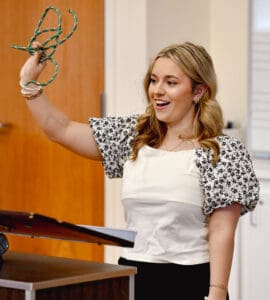COLUMBIA, Ky. – Different paths and ways to build effective teams through leadership were put under the microscope at the 2025 Lindsey Wilson College L3 Leadership Symposium, held Thursday, March 27, in the college’s W.W. Slider Humanities Center Recital Hall.
A nonet of speakers discussed, examined and explored the multitude of traits and characteristics that contribute to the theme of this year’s symposium, “Synergy in Leadership: Building, Leading and Thriving in Teams.”
“What does it mean to be a team, and how do you get them to thrive together?” Director of Civic Engagement, Student Leadership and the Bonner Scholar Program Kisha Burton ’13, who organized the symposium, asked the audience. “That’s what we will hear from our speakers.”
Drawn from the college’s student body, faculty and staff – what Burton called “a wonderful meeting of the minds from all parts of campus” – the three trios of speakers offered a wide range of approaches to forming and building a team that can thrive in many environments and conditions.
But before leaders can lead, they must first be grounded.
“You have to grow personally, self-awareness is a key,” said assistant football coach Marcus Graham ’17.
Graham talked about three types of leaders – vocal, exemplars and servant leaders – all of which are necessary in various situations and environments.
Graham’s fellow coach, assistant men’s soccer coach Thomas Pazo, said that leaders must set standards by exhibiting the level of behavior they expect to see from their team. It’s also essential for leaders to form and shape an organization’s culture, with an eye toward the positive.
“If you can be positive, I think you have to be, because it can impact the world in so many ways,” said Pazo.
Women’s residence director Madyson Jones ’24 said that she has learned both as an athlete and as a student services professional that building a team culture that encourages accountability and collaboration has proven to be a successful formula for her.
“The things I’ve learned as an athlete are surprisingly similar to my first two professional jobs,” said Jones, adding: “It’s not about our title – it’s the impact we make that matters.”
Alisha Claycomb ’26, Zachariah Lawson ’26, Reilly Wells ’26 and Mia Weigel ’25 drew heavily on their experiences as Lindsey Wilson students to sketch out effective leadership approaches.
“I found that it is working together as a collective to create outcomes that we couldn’t do alone,” said Claycomb, of Louisville, Kentucky, who is president of the Lindsey Wilson Black Student Union.
The student speakers also reminded the symposium’s audience members of the different kinds and styles of leadership.
“One of my strengths is breaking the ice and soothing any awkward tension that arises from forced collaborations,” said Wells, of Columbia, who also demonstrated tying knots as a metaphor for leadership. “While there are many forms of leadership, I take pride in leading people to feel comfortable within a group, pulling them together in the same direction to get the job done.”
School of Arts and Humanities Dean Allison Smith told how her leadership was forged out of tragedy, when her fellow English professor and close friend Kara Mollis, who served as the school’s first dean, died of breast cancer in June 2021.
“It completely disrupted our campus and left our campus mourning,” said Smith, who first served as the school’s interim dean after Mollis’ death before later being named its permanent dean.
New to academic leadership, Smith searched unsuccessfully for a book to help her lead in the wake of a leader’s untimely death. So she pieced together a four-part leadership strategy, borrowing from feminist and leadership theories.
Locating the purpose of leadership, or the “why,” is also critical.
“If you don’t know why you do what you do, you will never lead with purpose,” said Lawson, of Williamsburg, Kentucky, who is president this year of the Lindsey Wilson Student Government Association. “Leadership without purpose is like sailing without a compass.”
Recalling how upperclassmen in the Lindsey Wilson Bonner Scholars Program demonstrated leadership through example to her, Weigel lifted up the power of leading with love.
“I had upperclassmen who led me … and showed me empathy,” said Weigel, of Hustonville, Kentucky, who is the Bonner Scholars Program senior intern. “They showed me what leadership can look like when it’s rooted in love, community and purpose.”
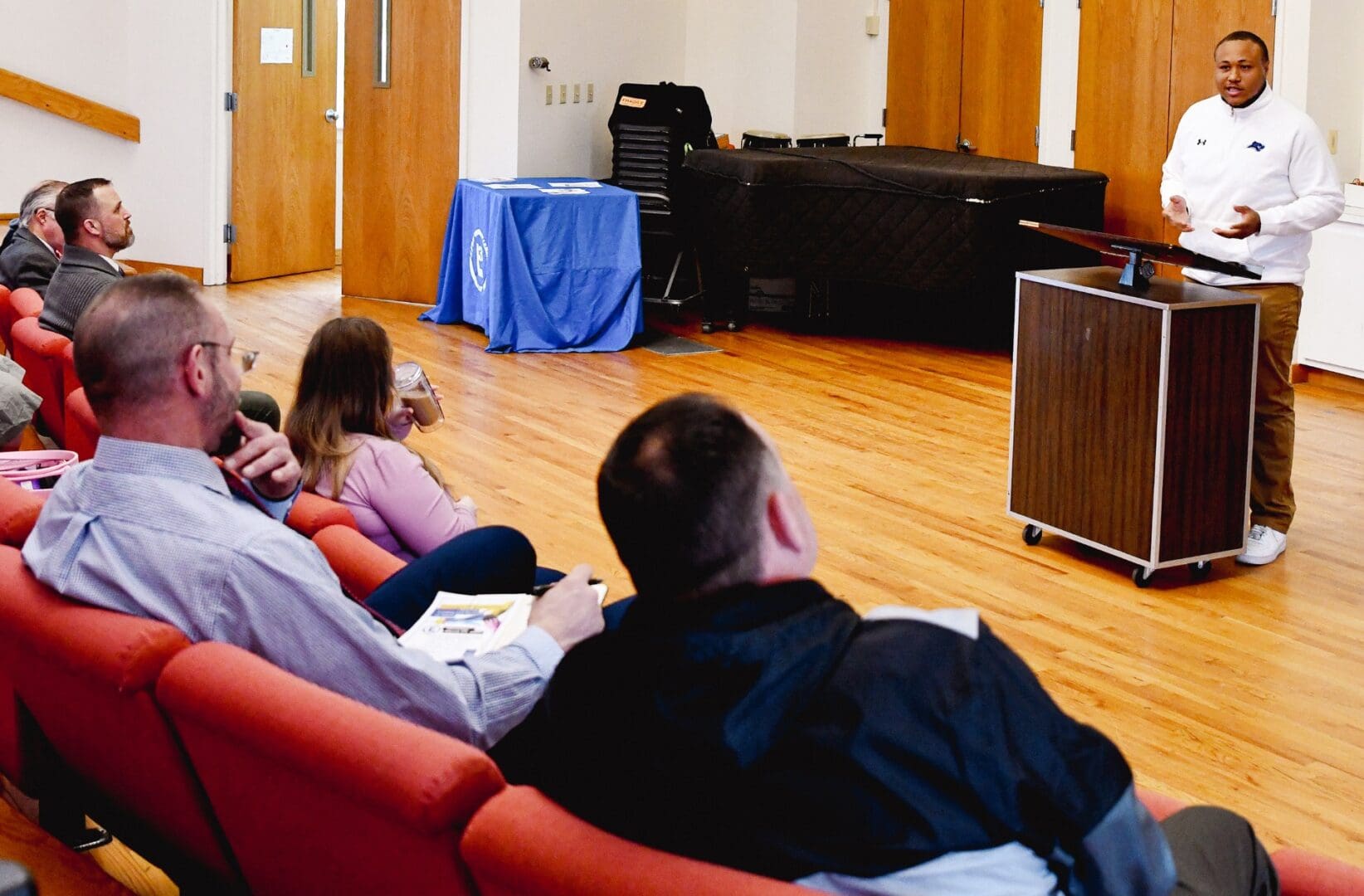
PHOTO – Lindsey Wilson College assistant football coach Marcus Graham ’17 kicks off the 2025 Lindsey Wilson College L3 Leadership Symposium, held Thursday, March 27, in the college’s W.W. Slider Humanities Center Recital Hall.
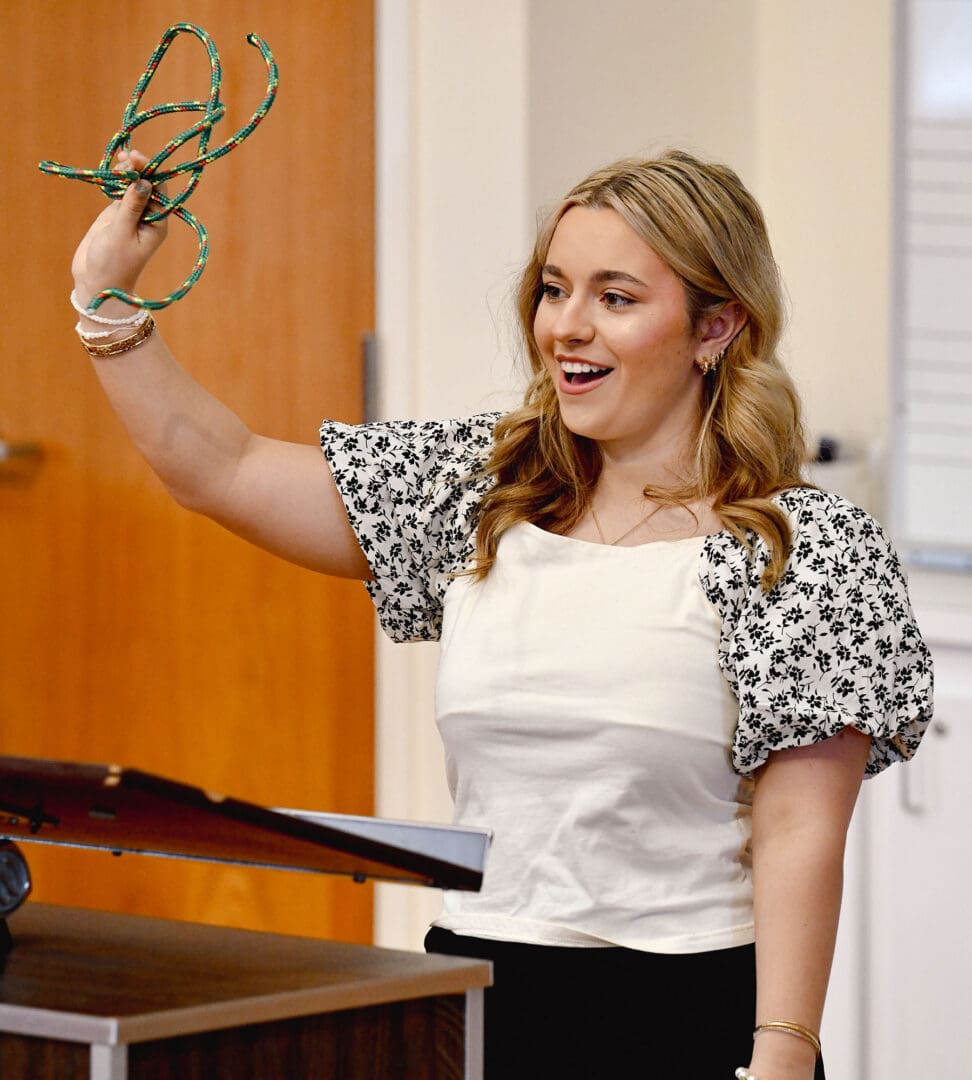
PHOTO – Lindsey Wilson College student Reilly Wells ’26 used knots as a metaphor for leadership during her talk in the 2025 Lindsey Wilson L3 Leadership Symposium, held Thursday, March 27, in the college’s W.W. Slider Humanities Center Recital Hall.
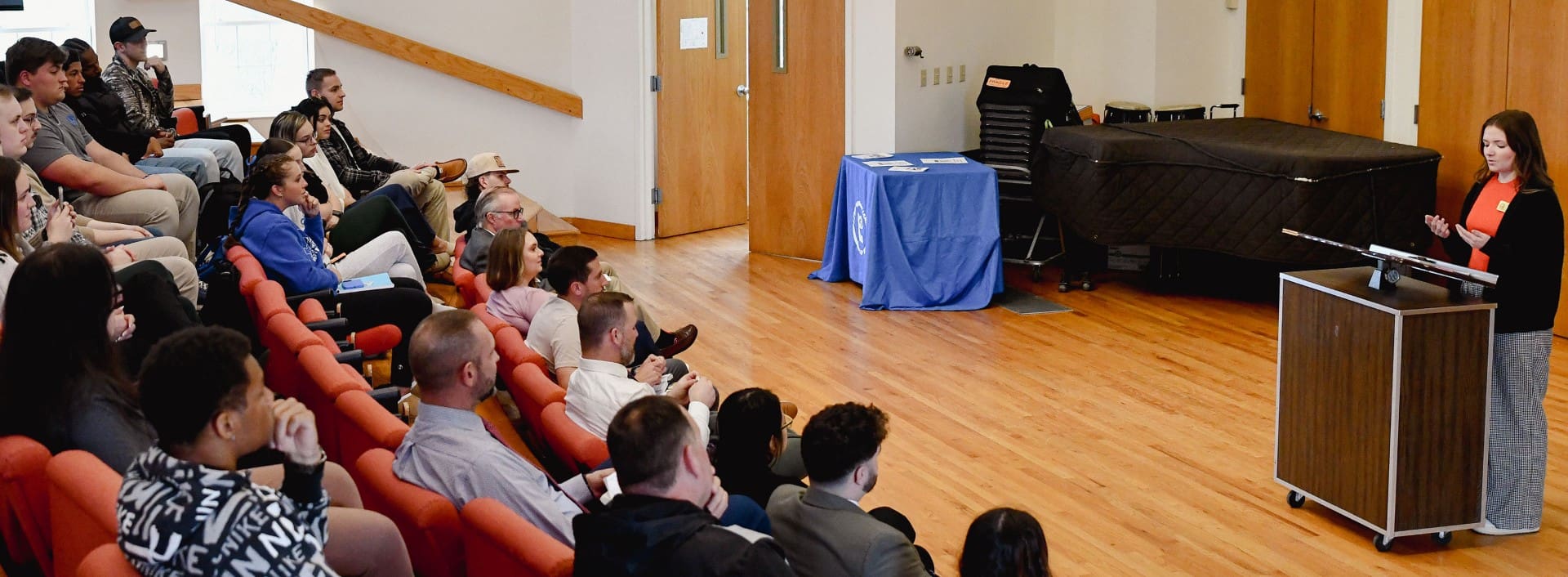
PHOTO – Lindsey Wilson College women’s residence director Madyson Jones ’24 discusses how the lessons she learned playing athletics have translated into her work during her talk in the 2025 Lindsey Wilson L3 Leadership Symposium, held Thursday, March 27, in the college’s W.W. Slider Humanities Center Recital Hall.
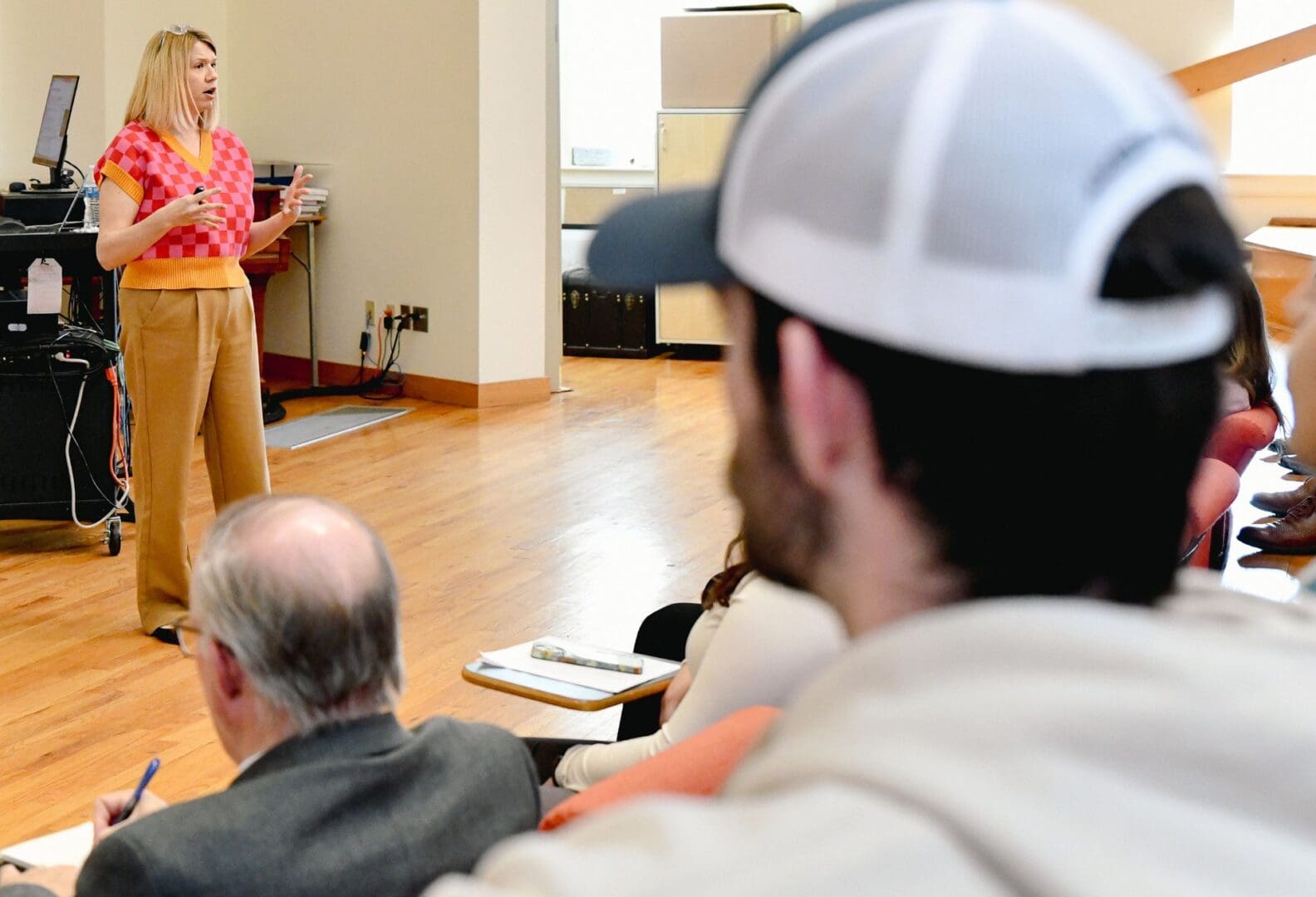
PHOTO – Lindsey Wilson College School of Arts and Humanities Dean Allison Smith told how her leadership was forged out of tragedy during her talk in the 2025 Lindsey Wilson L3 Leadership Symposium, held Thursday, March 27, in the college’s W.W. Slider Humanities Center Recital Hall.
(Duane Bonifer – Lindsey Wilson College)


